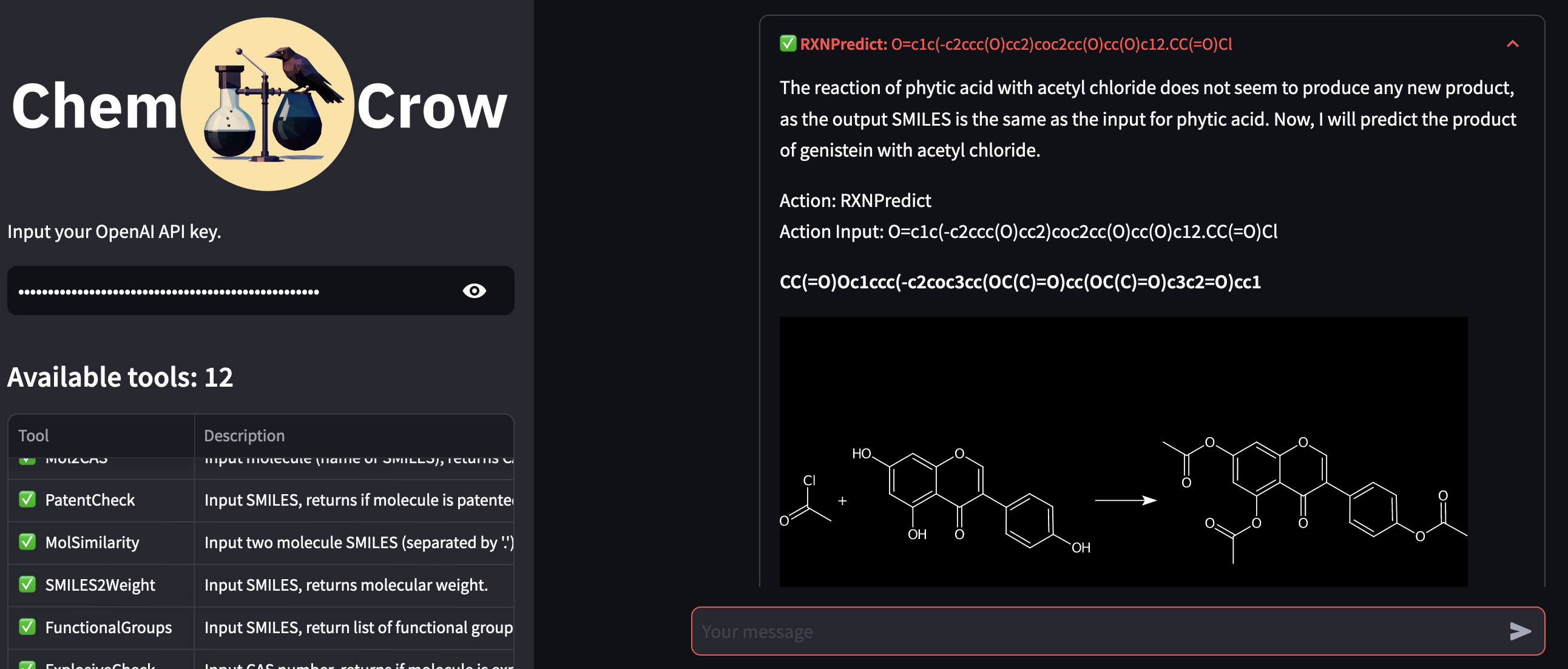ChemCrow: Augmenting large-language models with chemistry tools
Over the last decades, excellent computational chemistry tools have been developed. Integrating them into a single platform with enhanced accessibility could help reaching their full potential by overcoming steep learning curves. Recently, large-language models (LLMs) have shown strong performance in tasks across domains, but struggle with chemistry-related problems. Moreover, these models lack access to external knowledge sources, limiting their usefulness in scientific applications. In this study, we introduce ChemCrow, an LLM chemistry agent designed to accomplish tasks across organic synthesis, drug discovery, and materials design. By integrating 18 expert-designed tools, ChemCrow augments the LLM performance in chemistry, and new capabilities emerge. Our agent autonomously planned and executed the syntheses of an insect repellent, three organocatalysts, and guided the discovery of a novel chromophore. Our evaluation, including both LLM and expert assessments, demonstrates ChemCrow's effectiveness in automating a diverse set of chemical tasks. Surprisingly, we find that GPT-4 as an evaluator cannot distinguish between clearly wrong GPT-4 completions and Chemcrow's performance. Our work not only aids expert chemists and lowers barriers for non-experts, but also fosters scientific advancement by bridging the gap between experimental and computational chemistry.
PDF Abstract
